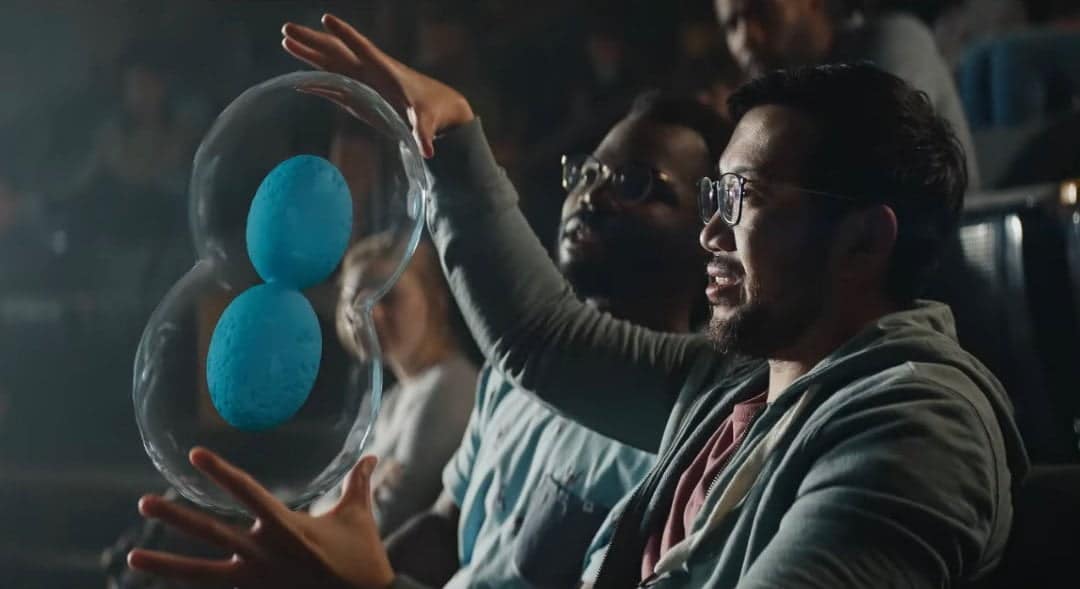Like it or not, Big Tech is building the metaverse: an approach that aims to do in the virtual world many of the things that are done in physical reality (and some that cannot be done).
Technically, the metaverse hasn't been created yet. As with other technologies, if individuals are unable to imagine it, they will not be able to accept its birth. For this reason, Meta has launched a campaign of two commercials that illustrate how this immersive world can become part of people's daily lives.
Not just games: culture and practice
With a video titled The Impact Will be Real, the Internet giant tries to explain that the metaverse will be more than just fun. The campaign clip actually shows how digital can be integrated into reality for educational and medical purposes.
At the beginning of the commercial, a professor "throws" a floating cell (which I RANDOMLY notice is similar to Meta's logo) to his students while giving a lecture. The structure and internal functioning of the cell can be observed by moving it manually, so as to better understand its construction and functions. In other words: immersive teaching.
The clip also explores possible applications of the metaverse forvirtual training to surgery. The campaign shows how medical students can practice working with 3D body parts an infinite number of times before transferring their skills to the real world.
Another application, which everyone will have more or less thought about: students and visitors will be able to "travel" through time. As? With "trips" to reconstructed environments, perhaps to interact with avatars of historical figures they have known from history books.
Persuasion campaign
The second video it has a more docu-fiction-like slant, more closely describing the metaverse that people expect. Entitled Fishing with Dad (fishing with dad) and shows father and daughter on a virtual fishing trip. Even if they are miles and miles away.
Among the objectives of Zuckerberg's company in this campaign is obviously to convey the message that the metaverse will be able to strengthen some relationships. If in the past writing a letter, or being on the phone with someone far away, or video calling them served to keep in touch, an immersive interaction will be even more useful.
We want people to know that the metaverse has real potential
from the Meta commercial
It takes time
There is no doubt that there is indeed great potential. I say it, of course, but hundreds of top-level companies think so too. Just as there are social and ethical risks to explore and if possible avoid.
Mainly, however, there are technical limitations. I have a second generation Oculus and I can tell you that there is still very little you can do with it. These headsets are still impossible to keep on for a long time: they are clumsy and weigh a lot.
The next versions (first of all the one that Meta will present next year) will bring the general public even closer to the metaverse. To see something similar to the viewers worn in the commercials of this campaign, however, I think it will be necessary to arrive at the end of this decade.
Who knows if these "glasses" will one day they will replace cell phone and laptop. There's only one way to know: get to see it (or not see it).


